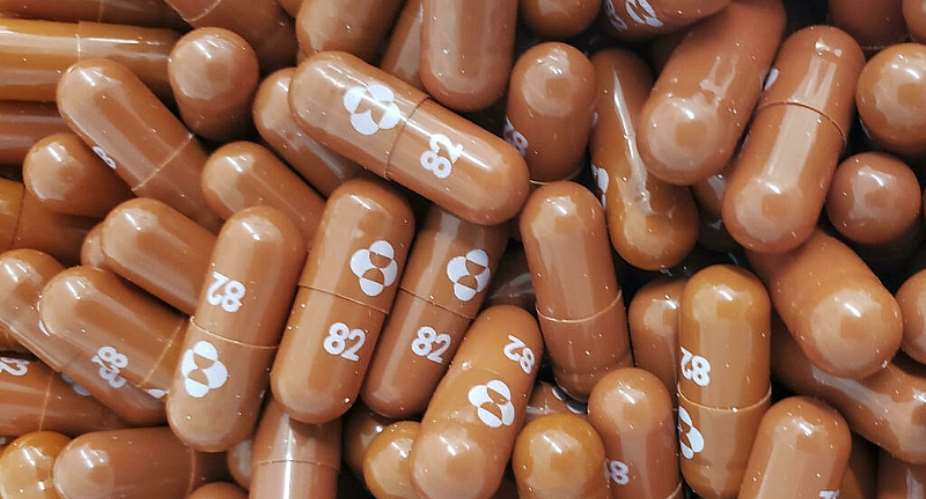France has placed an order for 50,000 doses of the oral drug known as molnupiravir, used to treat Covid-19. The American laboratory Merck says it reduces the risk of hospitalisation by half in patients who take it during their first few days of infection.
The drug, which as a tablet is easier to administer than existing intravenous treatment options, has been hailed as a breakthrough.
"It will be delivered at the end of November, beginning of December," Health Minister Olivier Véran told the Senate on Tuesday.
It comes on the heels of a decision by European health authorities to accelerate their validation of the drug.
"EMA's human medicines committee (CHMP) has started a rolling review of the oral antiviral medicine molnupiravir ... developed by Merck Sharp & Dohme in collaboration with Ridgeback Biotherapeutics for the treatment of Covid-19 in adults," the European Medicines Agency said in a statement.
"Preliminary results "suggest that the medicine may reduce the ability of SARS-CoV-2 (the virus that causes Covid-19) to multiply in the body, thereby preventing hospitalisation or death in patients with Covid-19," the Amsterdam-based EMA said.
Slowing down the disease
The EMA will now assess whether molnupiravir complies with European standards of efficacy, safety and quality, a process that could take several months.
Until now, Covid therapeutics such as monoclonal antibodies and Gilead's remdesivir – authorised for use in the EU under the name Veklury – have been administered intravenously.
Oral antivirals such as molnupiravir work by decreasing the ability of a virus to replicate, thereby slowing down the disease.
- New study shows why vaccine-resistant Covid strains will continue to emerge
- Why the Delta variant of Sars-Cov-2 is more virulent
Given to patients within the first few days following a positive test, molnupiravir is taken morning and evening for 5 days. It can also be prescribed for at-risk patients as prevention.
The drug was put forward for inspection by the FDA in the United States on 11 October.
Speeding up generic production
Meanwhile, the Bill and Melinda Gates Foundation last week announced an investment of up to 120 million dollars in an effort to speed up low-income countries' access to the new drug.
The money would be used to encourage the production of generic forms of the drug by other companies, especially in India, to which Merck has already granted such licences.
In a parallel development, the US-based Atea Pharmaceuticals, with Swiss pharma giant Roche, last week admitted suffering a set back in clinical trials of an orally administered drug.
The drug "did not meet its primary endpoint, showing no significant reduction in viral load", Atea said in a statement.





 We’ll no longer tolerate your empty, unwarranted attacks – TUC blasts Prof Adei
We’ll no longer tolerate your empty, unwarranted attacks – TUC blasts Prof Adei
 Bawumia donates GHc200,000 to support Madina fire victims
Bawumia donates GHc200,000 to support Madina fire victims
 IMF to disburse US$360million third tranche to Ghana without creditors MoU
IMF to disburse US$360million third tranche to Ghana without creditors MoU
 Truck owner share insights into train collision incident
Truck owner share insights into train collision incident
 Paramount chief of Bassare Traditional Area passes on
Paramount chief of Bassare Traditional Area passes on
 Two teachers in court over alleged illegal possession of BECE papers
Two teachers in court over alleged illegal possession of BECE papers
 Sunyani: Victim allegedly shot by traditional warriors appeals for justice
Sunyani: Victim allegedly shot by traditional warriors appeals for justice
 Mahama vows to scrap teacher licensure exams, review Free SHS policy
Mahama vows to scrap teacher licensure exams, review Free SHS policy
 Government will replace burnt Madina shops with a new three-story, 120-store fac...
Government will replace burnt Madina shops with a new three-story, 120-store fac...
